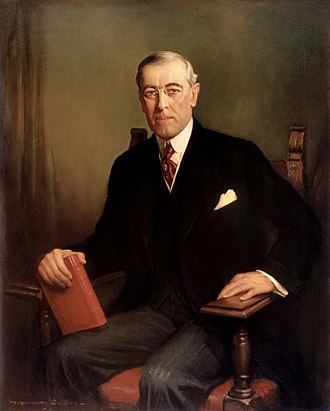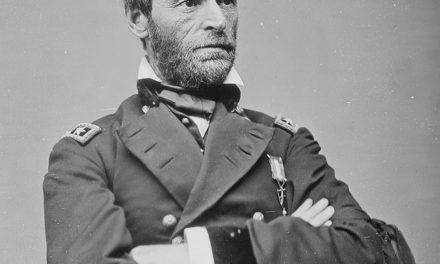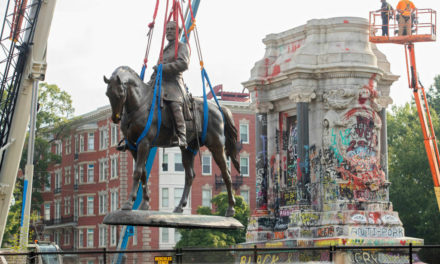Howdy folks – Francis here again for another Francis Friday.

Today in history, January 8th, is when Woodrow Wilson delivered his historic Fourteen Points speech to a joint session of Congress in 1918. (Sorry there’s no video, it was a wee bit too early for that.)
In this speech, Wilson outlined what he considered to be the ‘only possible’ path for peace in a world torn apart by the First World War, his ‘Fourteen Points’. This speech would be the basis for the actual peace plan that the victorious allies would impose upon Germany and her allies after the armistice finally took place ten months later on November 11, 1918.
And we all know how that turned out.
Us Snakes and Otters guys are not fans of old Woodrow. He thought himself uniquely enlightened, superior to everyone, and to be honest, we see him as drunk on power and obsessed with legacy. He’s been called an idealist and a peacemaker by some, and yet we know he was also undoubtedly what Martin so eloquently called a ‘vile racist’. (Martin rarely minces words, as we all know.)
I must admit, when I first began studying World War I, I really wanted to like the guy. History placed him on the world stage at a time when we needed visionary leaders who could make the world into a better place after an unprecedented bloodbath that had changed everything. As a general rule, Wilson absolutely did want to make the world a better place, an admirable goal certainly, but his is a great story of tone-deaf, elitist hubris imposed upon the world to its own detriment.
(If you want to read the best books on the subject of World War I, I strongly recommend G. J. Meyer‘s two amazing works: A World Undone about the war itself and The World Remade about American involvement in particular, including the peace process afterwards. Meyer makes an impossibly complex event manageable for the human brain without sacrificing anything along the way. Quite a feat for certain.)
Without getting into the weeds, Wilson’s driving ideals, in a nutshell, were all about interventionism. The term usually used is ‘liberal interventionism’, but most people get hijacked when that modifier gets added to anything. It’s perhaps best understood by calling it my own preferred term, “enlightened interventionism”. Basically, it says that ‘we the enlightened’ shall impose (by whatever means we have at our disposal mind you) our wonderful way of life upon all the rest of the world. For Wilson this meant imposing democracy, capitalism and freedom of self-determination. (Among many other things of course. As Trevor Slattery would say, “Hey, it’s complicated.”)
Now I can hear everyone saying, “But Francis! But Francis! Those are good things! We believe in those things! How is this a problem?”
Well, the ideals themselves ARE good of course. No one really doubts the virtues of Wilson’s points themselves as stated. The problem with Wilsonianism is the second part of the phrase, the “interventionism” part. That’s where things devolve into a great big steaming hunk of horse hockey, as the great Michael Garibaldi would say . . .
The reason Wilson is detestable is that his utter blindness as to how humanity actually works is a fatal flaw that doomed his proposals to failure. You simply cannot impose your own way of life onto others, no matter how good it might be. A truly wise individual would have known this, and Wilson, for all his idealism and intellectual might (he was an academic remember, a professor at Princeton) should have realized this. His arrogance as to his own superiority doomed him, and that’s not something to admire.
By imposing a system onto Germany by fiat, instead of allowing the people there to find their own way to these ideals on their own, Wilson in many ways created the perfect crucible which allowed World War II to be conceived. Its more complicated than that of course, but it should be obvious that self-determination only matters if the ‘self’ part is allowed its fullest freedom. Dictatorship brings its own evils with it, and unavoidably so. We resist anything ‘imposed’ by our very nature, and Wilson’s implied “do it because we say so” mentality enabled vengeance filled autocrats like Lloyd George and Clemenceau (don’t get me started on those two) to manipulate him and his intentions precisely because of the very systems for implementation he insisted upon. Now tell me who’s the fool here?
Anyway, I could go on and on, but really, if you want to hear us pick apart Woodrow Wilson with all the breadth and depth necessary to make some real sense, check out one of my favorites of our early episodes, Number 9 “Woodrow Wilson Screws The Pooch.” (It was Martin who came up with the title, stealing Charlton Heston’s line to Arnold Schwartzenegger in the awesome movie True Lies.)




